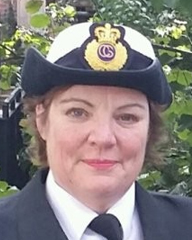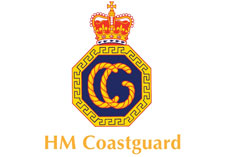How A Man Overboard Can Improve Their Chances of Rescue
This presentation will focus on the strategies on how a man overboard can increase their chances of rescue. Various detection aids will be discussed and how to best utilise them, along with various communication devices, and which work best from a SAR perspective. It will focus on the likelihood of finding a man overboard with no detection aids, describing the various searches that can be deployed with various SAR Assets and compare these to searches with detection aids. There will also be a brief overview of how the Mission Control Centre (MCC) works, with the detection of Personal Locator Beacons (PLBs). The focus will be on how a man overboard can make themselves more detectable in order to increase their chances of survival.
Her Majesty's Coastguard (HMCG) is a section of the Maritime and Coastguard Agency responsible for the initiation and co-ordination of all maritime search and rescue (SAR) within the UK Maritime Search and Rescue Region. This includes the mobilisation, organisation and tasking of adequate resources to respond to persons either in distress at sea, or to persons at risk of injury or death on the cliffs or shoreline of the United Kingdom. It is also responsible for land based search and rescue helicopter operations from 2015. Her Majesty's Coastguard is not a military force or law enforcement agency, with coastal defence being the responsibility of the Royal Navy, and maritime border control being the responsibility of Border Force. However, the organisation is a uniformed service.
The National Maritime Operations Centre at Fareham, Hampshire, has been operational since September 2014 and is the heart of the new National Network that manages Coastguard work around the whole of the UK coastline. As part of this network the NMOC, supported by 10 Coastguard Operations Centres around the country, manages workload across the whole UK. This means in a search and rescue incident there can be a bigger and better support work available to Coastguards wherever they are located in the network. Close to 100 Coastguards are based at the new centre at Fareham. All have been through an extensive training programme including live exercises with lifeboats and coastguard rescue teams. They are the first point of call for 999 calls ranging from vessels in distress, to people cut off by the tide, to those stuck in the mud and cliff fallers. Coastguards at Falmouth, Holyhead, Milford Haven, Humber, Aberdeen, Shetland, Belfast, London, Stornoway and Dover are on the network.
Karen Bosman - Maritime Operations Specialist, HM Coastguard

Karen is a Maritime Operations Specialist (MOS) based at the National Maritime Operations Centre (NMOC) in Fareham.
She has been a Coastguard for 10 years, having joined as a Direct Entry Watch Officer in Solent Coastguard.
She eventually worked her way up to Watch Manager before Solent closed, and she moved to the NMOC as a Coastguard Technical Trainer specialising in Search Planning and SAR Mission Coordination.
Prior to joining the Coastguard, Karen was a sailing instructor, working for British Offshore Sailing School. She also has extensive sailing experience, the highlight of which was sailing from Cape Town to Portsmouth on a 42-foot yacht, a trip that took three months.
As a MOS, her role is to mentor and assist trainee Coastguards with on watch training.
NEXT GEN Workshop PRESENTATION: Karen Bosman
How A Man Overboard Can Improve Their Chances of Rescue











